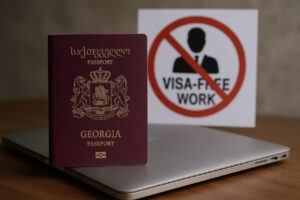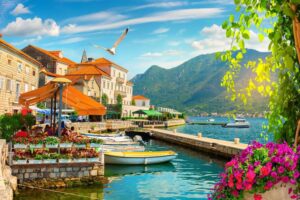
The Cyprus Parliament is considering initiatives that could significantly tighten the rules on property purchases by third-country nationals and foreign-controlled companies, amid discussions about housing affordability and the risks of uncontrolled land sales.
In particular, the AKEL party has submitted two bills to the House of Representatives that would introduce measurable restrictions for buyers from countries outside the EU. It is proposed to allow third-country nationals to purchase only one residential property with a size restriction (up to 200 square meters), as well as one office (up to 300 square meters) and one store (up to 200 square meters). At the same time, companies with foreign interests, according to the initiative, should be completely deprived of the right to purchase housing.
Another set of proposals concerns strengthening control over ownership structures: it is envisaged that the ultimate beneficial owner of a transaction will be required to disclose their identity in order to prevent purchases through Cypriot or European companies that are effectively controlled by non-residents from third countries.
AKEL also proposes to ban real estate purchases in areas near critical infrastructure, including ports and airports, as well as in coastal and buffer zones, and to completely ban the sale of forest and agricultural land to foreign buyers from countries outside the EU.
The party says the initiatives aim to protect the right to housing for local households, reduce pressure on prices, and take security factors into account. Discussion of the bills is expected to begin in the relevant committee after the Epiphany holidays.
Who mainly buys real estate in Cyprus
According to the audit service, in 2024, 4,321 transactions out of 15,797 (27.4%) were made by buyers from countries outside the EU, with the report noting that the actual share may be higher due to purchases through companies registered in the EU or Cyprus.
Statistics presented in parliament by Interior Minister Constantinos Ioannou for the period from September 2024 to September 2025 show that the most active foreign buyers are British, Israeli, and Russian, with notable transactions by citizens of Greece, Lebanon, and Romania. In terms of regions, for example, the British led in Paphos (890 purchases), followed by Israelis (683) and Russians (327), while in Limassol, Russians (846) and Israelis (571) were the largest buyers.
Ukrainian citizens have also appeared in the rankings of the top 10 most active real estate buyers in Cyprus in different years.

In Spain, foreign property buyers have slowed down a bit, but they’re still the main drivers of the market – especially folks from the UK, Germany, and the Netherlands.
According to the Spanish property registry, foreigners purchased nearly 23,700 residential properties in the third quarter of 2025, which is 4% less than in the same period in 2024. The share of transactions involving non-residents fell to 13.6% from 14.9% a year earlier, but is still about 36% higher than the average for the last ten years.
Who is buying: top nations in the Spanish housing market
In the third quarter of 2025, the largest groups of foreign buyers were:
Among other important buyers in the third quarter, moderate growth was recorded from Romania and Morocco, while demand from France, Italy, Belgium, and Poland declined slightly. Interest from buyers in the US and Morocco remained close to last year’s level. Demand from the Russian Federation and China fell significantly, by approximately 34% and 23%, respectively.
The full picture for 2024
According to the summary data for 2024, foreigners bought about 93,000 residential properties in Spain, accounting for about 14.6% of all transactions on the market. This is one of the highest figures in the history of observations.
According to the results for 2024, the main national groups are as follows:
Thus, the top ten in terms of purchase volume is primarily made up of Europeans – British, Germans, Moroccans, Dutch, Romanians, Italians, French, and Poles, supplemented by buyers from China and Ukraine.
Regions that attract foreigners
The most popular regions among foreign buyers remain the Mediterranean coast and islands: the Valencian Community, Andalusia, Catalonia, the Balearic Islands, and the Canary Islands. They account for the vast majority of foreign purchases, and in some provinces, such as Alicante and Malaga, the share of foreigners in the total volume of transactions reaches 30-40%.
What does the correction in demand mean?
Experts view the slight decline in the number of transactions in the third quarter of 2025 as a technical correction after a record-breaking 2024 rather than a reversal of the trend.
The share of foreigners remains significantly higher than the pre-crisis average, and Spain continues to attract buyers with its combination of climate, relatively affordable prices, and developed infrastructure.
At the same time, the structure of demand is gradually changing: the positions of the British and Germans remain strong, but buyers from the Netherlands, Central and Eastern Europe, and North Africa are playing an increasingly prominent role. For the local market, this means that the high proportion of foreign buyers will remain, but with greater diversity in terms of nationalities and sources of capital.
Source: https://open4business.com.ua/hto-z-inozemcziv-lidyruye-z-pokupky-zhytla-v-ispaniyi-analiz/

The Georgian authorities are carrying out a large-scale reform of migration legislation, which provides for tighter control over the legality of foreigners’ residence, the creation of a database of violators and the introduction of mandatory work permits from 1 March 2026.
Since 1 October 2025, the relevant ministry has been keeping a special register of foreigners who are or have previously been in the country illegally. State authorities have been given the right to request extended biometric data (including fingerprints and palm prints) and to carry out checks in private premises – residential buildings and workplaces – if there is a suspicion of a violation of the residence regime.
Complaints about the refusal to issue a residence permit or a decision on deportation will not automatically suspend the execution of such decisions. The new monitoring procedures apply to the main categories of residence permits – for work, business, study and property ownership.
A separate type of residence permit is being introduced for IT specialists: applicants must have at least two years of documented relevant experience and an annual income of at least $25,000. Such residence permits are issued for three years with the possibility of extension up to 12 years.
From 1 March 2026, foreigners will generally require a valid work permit to work in the country. Experts recommend that foreign citizens and employers prepare a package of documents in advance – employment contracts, proof of income, certificates of no criminal record – and strictly comply with the conditions of already issued residence permits, as violations can lead to additional checks, fines, deportation and refusals to extend status.
According to data from the National Statistics Office of Georgia (Geostat), in 2024, foreigners made up about 6.6% of the country’s population, or about 250,000 people, while in 2014 there were only about 22,000 (0.6% of the population). Research by ISET-PI and other think tanks shows that in 2015–2024, the largest net immigration inflows came from citizens of Russia (about 97,000 people), Ukraine (about 27,000) and Azerbaijan (about 14,000), with significant groups also coming from Turkey, India and Belarus.
Analysts note that further tightening of the migration regime could lead to a partial outflow of relocants and their families to other jurisdictions with more predictable rules – primarily to EU countries with active programmes for IT and start-ups (Portugal, Spain, Germany, the Czech Republic), as well as to destinations already popular with people from Russia, Ukraine and Belarus: Serbia, Montenegro, Armenia, Kazakhstan and the UAE. According to consultants, the key factors when choosing a country for relocation are the transparency of residence permit and work permit procedures, the availability of housing and political stability.

In January–June 2025, foreigners purchased 71,155 homes in Spain, which is 2% more than a year earlier; with their transactions accounting for 19.3% of all home sales, according to the Spanish Notary Council. The British lead the way with 5,731 transactions, followed by Morocco with 5,654 and Germany with 4,756, according to notaries.
Among the nationalities that showed historic highs was Ukraine: in the first half of the year, 2,165 home purchases by Ukrainian citizens were registered, which was a record for the series of observations. Citizens of the US, Portugal, Italy, Morocco, Colombia, and the Netherlands also set new records.
According to notarial statistics, the main concentration of transactions with foreigners is recorded in the coastal provinces and islands—Alicante, the Balearic Islands, Malaga, and Santa Cruz de Tenerife. The market continues to show price differences: American buyers paid an average of €3,465 per square meter, the highest among foreigners; Ukrainians paid around €1,832 per square meter, and Moroccans paid €747 per square meter.
According to notaries and the regional press, purchases by Russians fell by 17.4% and remain below pre-crisis levels; they did not feature among the top nationalities in terms of the number of transactions.

According to Serbian Economist, following a meeting of the National Security Council, the Montenegrin government announced that it was preparing amendments to the Law on Foreigners, which would abolish the requirement to obtain a residence permit on the basis of ownership of a “dormant” or formal company and linking the right to reside to full-time employment with a registered employer or a newly established company with contributions and salaries above the minimum. This is stated in a government announcement.
According to the government, interagency checks on the migration and economic activity of foreigners are being tightened; owners of inactive companies in foreign ownership will have their right to reside terminated.
At the same time, the authorities are preparing to restrict visa-free short-term stays for citizens of countries that are not in line with EU visa policy from 90 to 30 days. The authorities have been instructed to prepare subordinate legislation based on the new criteria.
In Montenegro, it has long been possible to open a company and, on this basis, obtain and extend a residence permit; the authorities say it is necessary to close down “schemes” of fictitious employment and bring the rules into line with European standards. In public discussions, it is noted that the “1 euro company” regime should not apply to foreigners.
The greatest risks are faced by foreigners who have obtained a residence permit through their own companies without real activity or without full-time employees and payment of contributions.
In terms of business structure and residents, company owners from Turkey, Russia, Serbia, and Ukraine are in the lead; they will be the first to feel the requirements for real employment and tax payments.
According to open estimates, Turkish citizens own about 9,800 companies, Russians about 7,200, and Serbs more than 3,200; in total, there are more than 31,000 foreign companies in the country.
The geography and main risk groups are as follows:
1) Turkey – the largest group of company owners; in addition, according to police data, more than 13,000 Turkish citizens have a residence permit or a residence permit + work permit. There is a risk of losing status in the absence of real employment and contributions.
2) Russia – second in terms of the number of companies and one of the largest groups of residents; “paper” companies are at increased risk of having their residence permits revoked.
3) Serbia – a significant group in terms of residence permits and companies; formal structures without employees will also be subject to checks.
4) Ukraine – a noticeable share of company owners; formal companies without turnover and employees are under special scrutiny.
The exact parameters will be determined by amendments to the law and subordinate acts.
Source: https://t.me/relocationrs/1694

According to Serbian Economist, the Montenegrin government has submitted amendments to the law on foreigners to parliament, which provide for stricter conditions for granting temporary residence and work permits. The aim is to link the extension of stay to the financial capacity of applicants and their real economic contribution.
According to the government’s explanations, the extension of temporary residence for property owners is planned to be linked to the cost and area of the property, and for company founders and directors – to confirmation of actual activity and payment of taxes. Closer coordination between the Ministry of Internal Affairs and other agencies and international organizations is expected. The bill was supported by the relevant committee without any votes against, and the document will now be considered by the Skupština.
Context: Against the backdrop of a growing number of foreigners in 2024-2025, the government expanded electronic procedures and special statuses (in particular for digital nomads), while gradually raising the economic criteria for residence. After the first reading, subordinate legislation is expected to be introduced with methods for assessing real estate and verifying the economic activity of companies. Specific thresholds — the cost and area of housing, minimum tax indicators — will be announced separately.
According to the Ministry of Internal Affairs, as of September 10, 2025, there are 100,867 foreigners living in the country: 71,250 with temporary residence and 29,617 with permanent residence.
The structure of temporary residence is dominated by citizens of Serbia, Russia, and Turkey; approximately 24,538 Serbs, 21,153 Russians, and 13,396 Turks.
In the first 11 months of 2024, 65,895 permits for temporary or permanent residence and work were issued.
As of June 1, 2024, nearly 5,000 Ukrainian citizens were under temporary protection; in 2025, 5,463 applications for renewal and 2,006 new applications were recorded.
Since the temporary protection regime came into force on March 11, 2022, 13,034 applications have been submitted, of which 12,302 have been approved (as of January 13, 2025).
Between January and August 2025, 69,826 Ukrainian citizens entered the country and 67,561 left; since the start of the full-scale war until January 13, 2025, 293,414 entered and about 292,500 left. Some Ukrainians are staying for other reasons (short-term, temporary, or permanent residence).
Source: https://t.me/relocationrs/1681